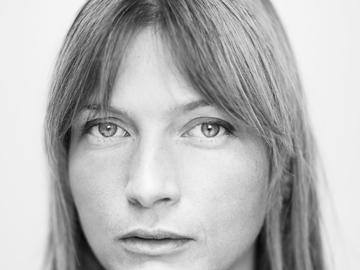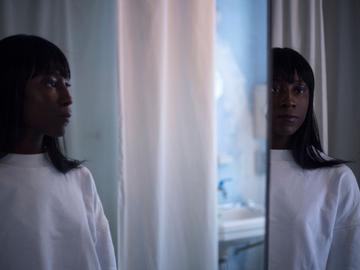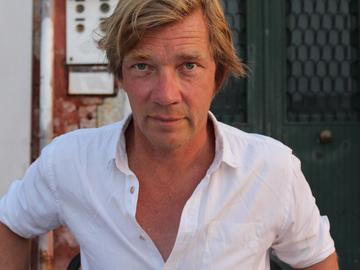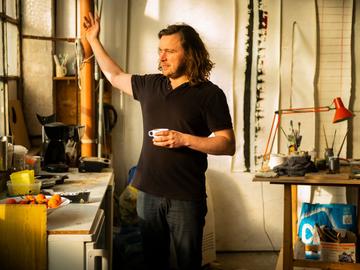For three weeks, a Brussels creative shares their view of the world. Writer, slam poet and activist JOËLLE SAMBI fights her way through poetry and her many identities. Instagram: @josambi
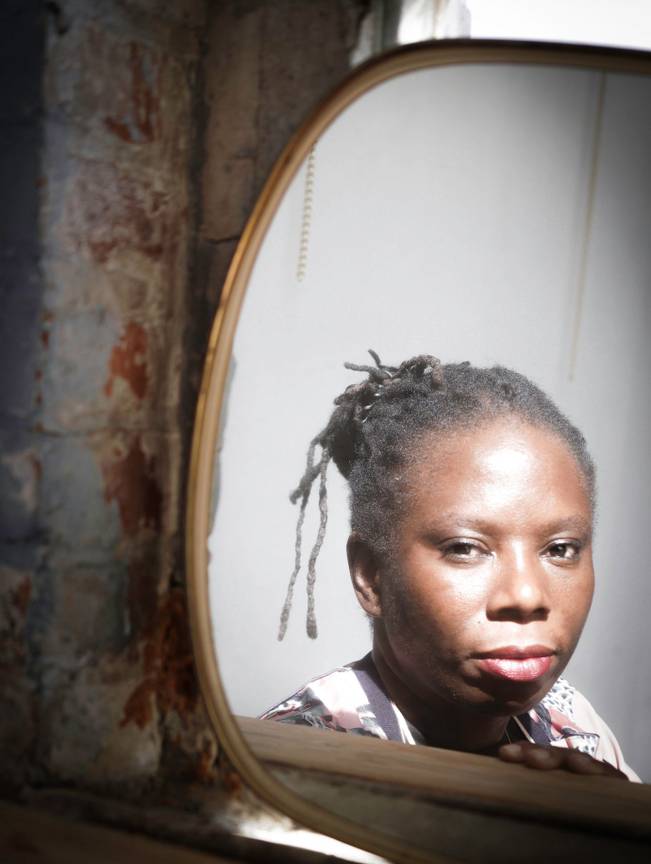
© Sophie Soukias
| Joëlle Sambi.
Joëlle Sambi: 'No revolution occurs when police on horseback charge young people'
Also read: Urban art through the eyes of Joëlle Sambi
On 28 November, it was the International Day for the Elimination of Violence against Women. In Brussels, in radical circles, it is referred to as “violence against women and gender minorities.” That is an important clarification because the name indicates the “pedigree” of the protesters.
The route of that march was a trek: Gare Centrale, the Botanique, the Petite Ceinture, Place Poelaert, Rue Royale, then back to the starting point at Gare Centrale. As is customary, police lined the entire length of the procession, especially in the area around the inner ring road. The whole way the crowd remained face to face with uniformed men. Further on, vans were parked strategically to prevent the discontented hordes from getting too close to the EU institutions or to the Royal Palace.
For me, taking to the streets in protest reflects a growing awareness of the violence that pervades the entire liberal, patriarchal, and racist system. There is no naïve optimism about it, because there is nothing heroic about being corralled by a throng of accredited robocops. No great reckoning comes to pass when you have to swallow your rage at the sexist remarks of some of the cops. No revolution occurs when police on horseback charge young black and Arab people between Chaussée d'Ixelles and Rue de Namur.
There is a such a wide variety of things to be angry about in Belgian society that, even when there is a united call to demonstrate, it is difficult to know exactly who is who. On a demo, the frustrations that fuel our individual and collective struggles always seem to come together as one, united in a single purpose. At least in appearance.
There is a such a wide variety of things to be angry about in Belgian society that, even when there is a united call to demonstrate, it is difficult to know exactly who is who
Nowadays, everyone is required to question where they are coming from, to question the conditions of their evolution and the legitimacy of their position. In fact, you cannot be an activist (anymore?) without questioning, without nuance. But a demonstration strikes me as the last place for nuance: it is somewhere to put things in perspective, an opportunity to meet people, to build bridges. Nonetheless, I wonder if it is possible to bring about a decentring. Is it possible, when we march together, as well as making a show of strength, for us to also question ourselves about the social violence that forces people into poverty as well as leading to people being killed by the police? To question the murders of women and trans people as well as those of racialised people? It is about stepping outside of your box and recognising how violence worksbeyond how it relates to our own viewpoints.
Our demonstrating bodies, even when divided into distinct blocks, say something about the place where we stand: what is radical about it? What compliance exists? And the distinctiveness of our slogans is undeniably powerful. That is what I felt while I was marching on the concrete in Brussels on that Sunday. I found myself dreaming up a route that would lead past all the sites of our suffering: Rue Ravenstein for Mehdi who was killed there, hit by a police car, on towards Place Lumumba via Place du Béguinage, Rue du Korenbeek in memory of Leïla Z., the Centre Pachéco on Rue du Grand Hospice in recognition of the treatment of undocumented persons, and so on.
I found myself imagining Brussels in Protest as a political pathway, a heuristic journey that pushes people to think about the genealogy of violence, one that really brings us together in a shared struggle, and not just in a name.
Want to reread the whole series? BRUZZ.be/bruxellesvies
Read more about: Expo , Joelle Sambi , BruxellesVies
